Ashlyn Erickson looked out her window as her neighbor came home from work. His arms were full, carrying his work equipment. Her best friend, Lucy Helgestad, came running out to greet her dad. Erickson watched as the father dropped everything and knelt to hold his little girl. Helgestad’s dad wasn’t just any father returning from work, he was a Lieutenant Colonel in the Minnesota Army National Guard.
Erickson watched LC Helgestad slowly released his daughter. She smiled as her father rose and collected his bags. Together they entered the house and left Erickson alone with her thoughts. She knew this was something she wanted to experience someday. The two girls had been friends for as long as they could remember. Moments like this would continue as the years went on. The more time Erickson spent with the Helgestad family, the more she admired LC Helgestad.
“I watched him — through her entire childhood — go do his thing and deploy,” Erickson said. “And I was like… I want to do this someday.”
Erickson knew she had two choices, become an enlisted soldier or become a commissioned officer. Enlisted soldiers serve as the backbone of the military, conducting tasks that range from combat to technical duties. As soldiers gain experience, they rise in rank and become Sergeants. Gaining leadership and responsibility to ensure mission success. Officers, however, are responsible for planning missions, strategizing, and overseeing the operation. Most officers hold a 4-year degree and have conducted training programs such as the Reserve Officers Training Corps (ROTC).
LC Helgestad connected Erickson with a University of Minnesota ROTC recruiter. The recruiter explained that ROTC would be the best fit for her, emphasizing that she would gain leadership skills and experience while earning more tuition money to help pay for college. Erickson, who was interested in attending a private school and majoring in business, found the program quite appealing. experience.
“I feel the officer side just interests me more,” Erickson said. “I’ve grown up around that side so that’s how I feel.”
ROTC offers students a chance to become officers in the United States Military while simultaneously paying for their four-year degree. During this time, students take army leadership courses and skills assessments, which provide real-world knowledge and experience. In addition, they put on the uniform and train one weekend a month. In return, students must serve four years as an officer after graduation in some capacity. Whether that is active duty or national guard, it depends on if the cadet wants to deploy.
As a sophomore at Bethel University, Erickson has been part of the ROTC program for two years. She wakes up at 4:30 a.m. every Monday, Wednesday and Friday morning and makes the 15 minute commute to the University of Minnesota for her classes that focus on army leadership, battle drills and communication. One weekend a month, she trains at the Arden Hills Armory, where she conducts land navigation training. As well as packing up to 50 lbs of equipment into large backpacks called “rucks”, then marching with them for two to four miles.
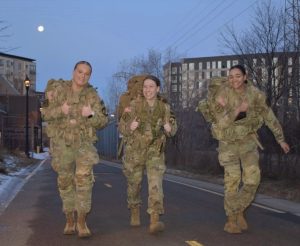
Devoting 10 hours a week to the army requires that Erickson find a tricky balance between completing classwork, working at the Bethel Post Office and spending time with friends and fellow cadets, Paige Caouette and Isaac Bei.
“I just plan out my week ahead of time,” Erickson said. “And then just [found] a job that you get paid to do homework at.”
Since Bethel doesn’t offer an ROTC program on campus, Erickson commutes to the University of Minnesota early in the morning. While she does not mind it, her fellow cadet Caouette does. Caouette is a nursing major at Bethel and has been involved in the ROTC for two years. This year she has ROTC classes in the afternoon, making her commute longer and forcing her to take classes that don’t interfere with her ROTC schedule. Still, she can see why Bethel doesn’t offer the program on campus.
“I think that it’s such a small school,” Caouette said. “I just can’t really see it working out very well.”
Cauette joined ROTC over the Guard so she could focus on being a student without the risk of being deployed. She can study with fellow cadets, and go to chapel with fellow soldiers. Each of them is tied together with experience only one-percent of students share. Caouettte feels God has worked through ROTC to help her branch out and meet other Christian students.
“I like just being able to meet people from different backgrounds,” Caouette said. “And being able to see God in that whole experience.”
This year Cauette is taking a military history class. The class entails reading about historical wars, such as the War of 1812, and then giving 20-minute presentations on it. Cadets have to decide what detail is important, and what to throw out. Then, piecing together a slideshow focusing on the important information. This allows the cadets to focus on the student aspect of their training. Soaking up the necessary information to retain for exams and future presentations.
“You’re gonna have all this information thrown at you,” Caouette said. “In a way, it’s preparing you for your future career.”
The ROTC program at the University of Minnesota consists of fifteen instructors and a separate building to conduct training. They bring eleven other schools including the University of Northwestern, for training events. Given the diverse religious beliefs and practices of these schools, Isaac Bei, a Biblical and theological studies major at Bethel, believes this diversity is a significant reason why Bethel does not host an ROTC program on campus.
“The army does not support one religion,” Bei said. “So for Bethel, it really limits them.”
Bei felt that God called him to be a pastor, but he also felt a strong passion for serving in the military. When Bei’s recruiter told him about a program called chaplaincy, he knew he was going to serve. Chaplaincy is a twelve-week program that trains soldiers to become a chaplain. The role of a chaplain is to spread and teach God’s word to their fellow soldiers. However, Bei still wanted to go to school and earn his college degree. ROTC would give Bei four years of training over twelve weeks. Upon becoming an officer, Bei could then begin his training as a chaplain.
The ROTC program has given students like Erickson, Cauette and Bei opportunities to further their academic and military careers, allowing them to apply what they learn to their professional and civilian lives. While Bethel may not offer ROTC, its students can still take advantage of the opportunities so long as they are motivated and willing to commute over to the University of Minnesota. Erickson believes that in the end, ROTC is worth it.
“When I came in I had no idea I wanted to be,” Erickson said. “It’s easier to see what my future’s going to look like.”







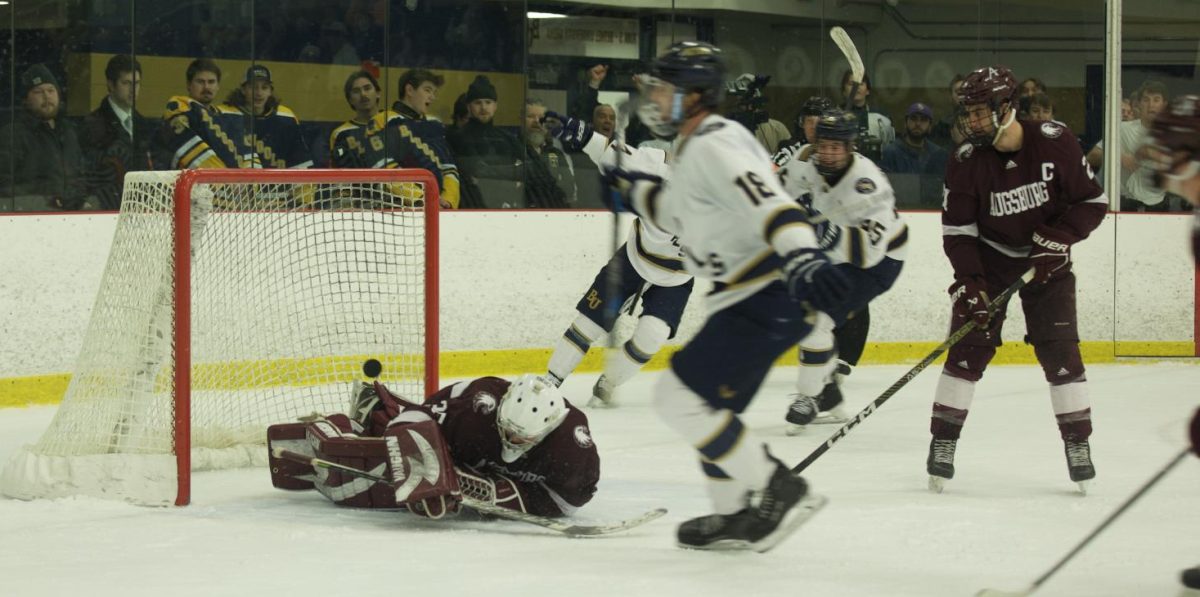
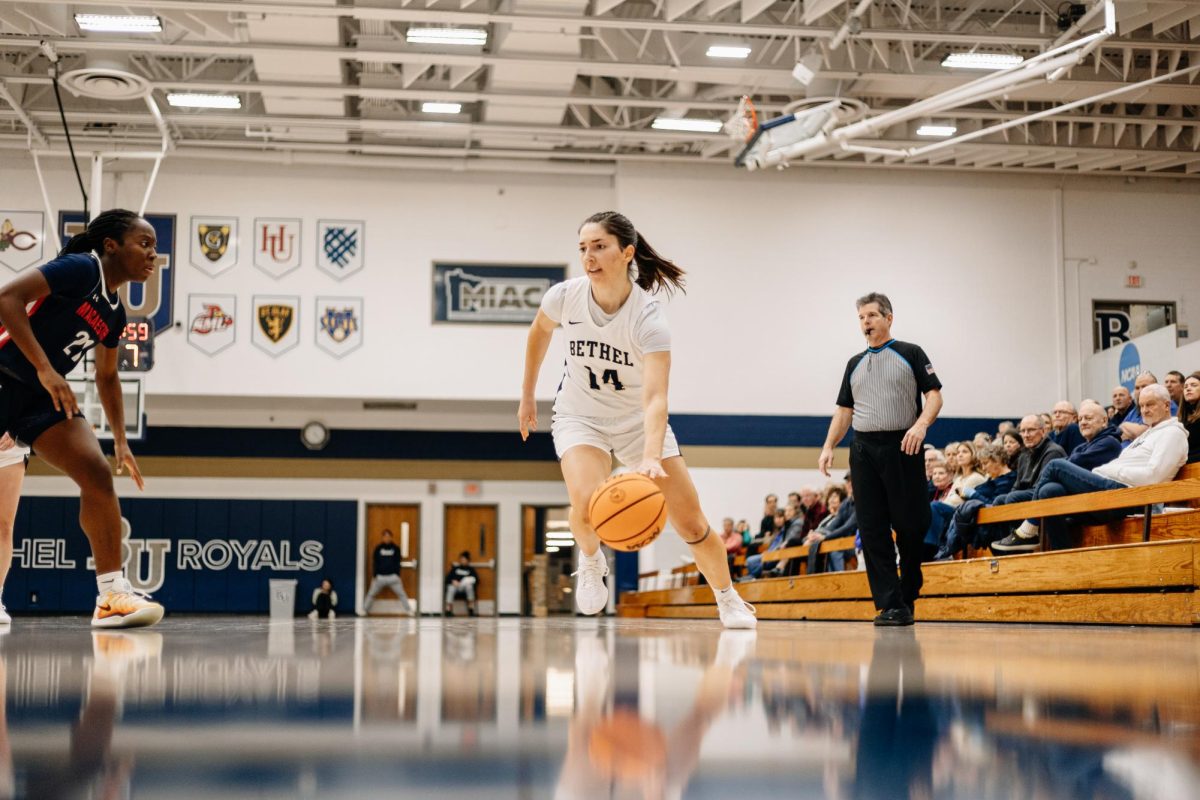
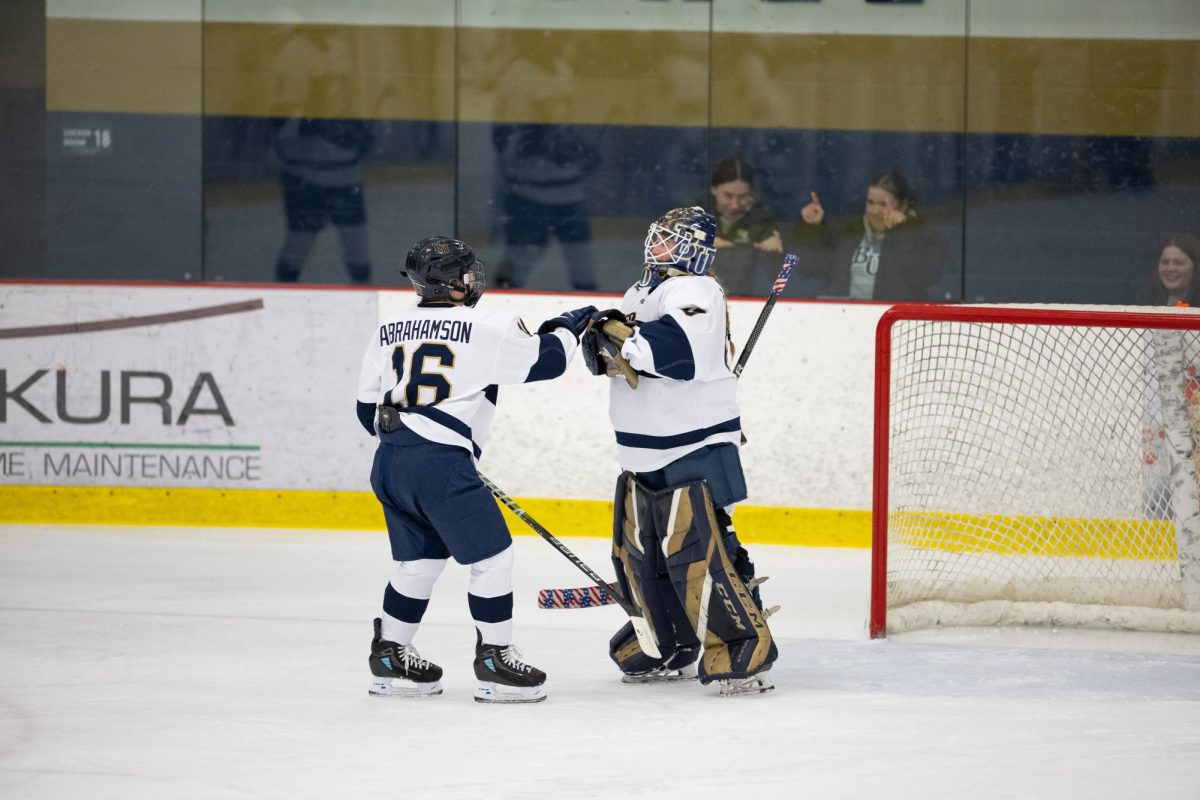







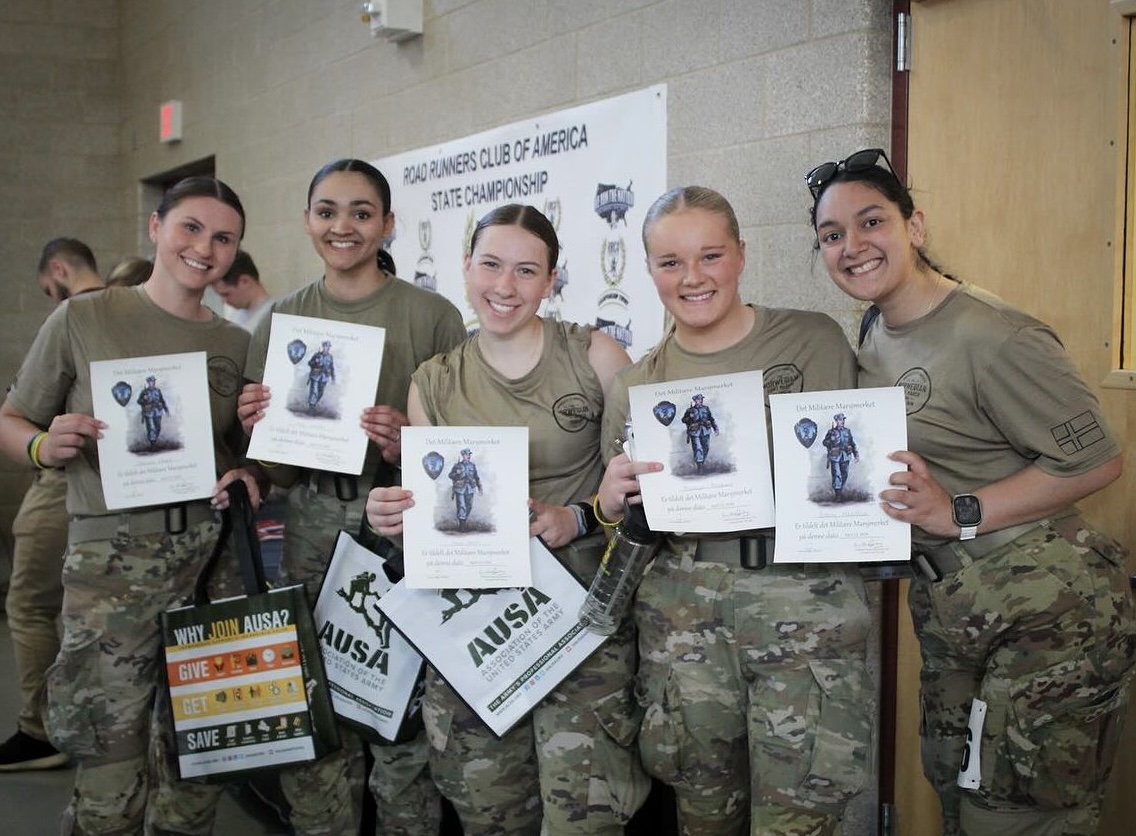


Kaleb Cramer • Sep 30, 2024 at 2:04 pm
This was a great story! I feel like it gave me a much better idea of what it’s like to be an ROTC student at Bethel. I think Bethel should start an ROTC program to solve the problems some of these students are experiencing. The story was easy to read and was very engaging!